
Esta resenha pode conter spoilers
An amazing start, but...1. Something about "fix me" stories as it relates to people with disabilities just doesn't sit right with me, I was hoping the part of the story about the FL being a wheelchair user would return, at the very least because it was wrapped very quickly, but instead it was mainly used to further the plot, with few moments focused on representation, which was disappointing.
2. The serial killer plot dragged on for sooooo long and it ended in such an anticlimactic way, it felt like in the end the writer didn't know what to do with the guy.
3. The constant timeline changes killed the momentum, especially the last one because I absolutely despise the amnesia trope, I find it usually useless because it puts a stop at the character/relationship development.
All of that means that if the drama was shorter, around 12 episodes, some of the issues with the storytelling could have been resolved, at least for me. All in all though, I did enjoy the lead couple immensely, no matter the little things I disliked, their chemistry always made up for it in the end.
Esta resenha foi útil para você?
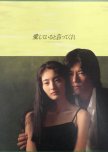
Esta resenha pode conter spoilers
It seems like I'm the only one who didn't feel bad for the male lead, well to be quite fair I also didn't feel bad for the female lead, in the end I think both of them were better off without one another.When it comes to the female lead, she was obviously ableist and very immature, and would cause more harm than good to the male lead, that became clear to me when she jumped to say very hurtful things about his disability when they fought. As a POC, I know very well what it's like to suffer from microaggressions even from the people you love, and in the long run maintaining a person like that in your life will slowly eat you up. I suppose that with the passage of time and the open ending we're supposed to accept that she changed, but I'd have preferred to actually see that development, and I don't think I saw much of it, considering that up until episode 11 she was still hang up on the fact that he couldn't/wouldn't speak.
As for the male lead, the one everyone feels sorry for, I do think this drama is a product of its time, watching this not long after watching Silent shows how far we've come in the portrayal of people with disabilities and interabled couples. I think the way the drama would sometimes made it seem like the male lead would be unable to find love was ableist in itself, and I say this based on the things his sister and ex-girlfriend said and how the break up made it seem like they were right in their assessments, so overall the writing was questionable.
But if I focus only on the characters and forget the world outside of them, I feel that the male lead also wasn't ready to be in a relationship, a lot of focus is put on the female lead's actions with her friend, both by the audience and the drama, but if I'm being honest I think the male lead's "situationship" with his ex-girlfriend was inappropriate, and showed how inconsiderate he was with his partner's feelings. The second the ex tried to kiss him, he should have cut her from his life, or at very least made clear there were lines she couldn't cross, but instead he became even more involved in her life, allowing her to be even more close to him despite her confessing to him multiple times, it was no surprise the female lead questioned their relationship, I think anyone would.
And then there's the slap....... again, forgetting the time period, forgetting the questionable writing, and thinking only about the characters and their actions, if you ask me, a man who commits an act of domestic violence gets the karma he deserves from the universe, and that's exactly what the male lead got.
So yeah, ultimately I don't think the break up is solely because of the female lead's actions, I guess that's where my opinion differs from others. And as for the open ending...... meh. If the drama had taken the time to show how they changed in those three years apart, then maybe I could see it, but since that didn't happen, I prefer to think that they just ran into each other and didn't get back together.
Esta resenha foi útil para você?
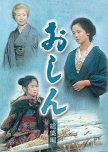
Esta resenha pode conter spoilers
A stressful watch
Few dramas have stressed me as much as Oshin, and it's all because the female lead's life can only be described as: struggled and conquered. In every corner there was an issue for her to overcome, and in every corner I was right there with her, anxious and stressed over what she was about to suffer.So while I absolutely see its merit and understand why people loved and continue to love this story so much, I can't help but rate it based on my enjoyment, and sadly I barely enjoyed this. The level of vitriol and abuse that Oshin suffers from so many people in her life (her father, her brother, her husband, her mother-in-law), made this so very tiresome to watch, and almost impossible to finish, I had to keep stopping constantly to the point where I lost count how many times I put this "on hold".
And yes, it is 100% a product of its time, but I'm a 21st century woman and I can't help but judge it based on my 21st century values, and to watch her husband beat her multiple times, once to the point where she was left disabled, was unbearable. Even more so because this is an 80s story set in the Meiji era, so his behavior was not only never criticized, but all in all their relationship was portrayed as prosperous, where she says many times that she was happy and proud to have been his wife. So it's safe to say that this did not make an exciting watch for me.
I'm sad that this is how I feel about such a beloved classic, but I'm not someone to lie and say I liked something just because of its status. It is what it is.
Esta resenha foi útil para você?
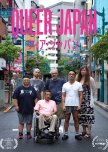
I love that we could see so many different subcultures, including the BDSM one, which was portrayed without any judgement, I also love that a lot of this focused on trans people, because so often they're ignored/forgotten even by the community.
On the other hand, this documentary was too specific, most of the people interviewed were activists, artists and people working in LGBT+ spaces such as clubs and bars, and they obviously have more freedom of expression than other people in the community, so while learning about their work was interesting, I wanted to hear a little about the day-to-day life of the regular person, who works in an office, for example.
I also think that because they interviewed so many people, we couldn't hear as much from each individual, when an interesting topic would come up, it'd quickly change for a new one with a new person, and I wanted to scream because hey bring back the person talking about how pride is all about money and love now, and how we need to focus more on the fight for dignity and civil rights, we need to hear more from them.
But overall: an important film, with resourceful information.
Esta resenha foi útil para você?
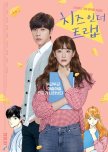
Everything was underdeveloped, the characters, their relationships, their history with one another. Seol's academic life is non-existent, we just see her attending class, but we don't see how much her college education means to her, her money issues are also not discussed, her family was not even introduced, so you miss out on the complicated and interesting relationship she has with them, she really only exists as a love interest.
The Baek siblings were also a huge victim of the script. In-ho's passion for the piano was barely discussed, and the psychological struggle he's faced since graduating from high school was cut, In-ha's goals and how she was stifled by her family was also excluded, really the siblings had no depth here, just one or two flashbacks and a bunch of scenes of them being violent. And the relationship between In-ho and Seol? There's nothing there, you would never guess this story is supposed to have a love triangle subplot.
And then there's the cast... one thing I can't complain about the drama was how well-casted it was, truly perfect, from the leads to the supporting characters. The film's cast was missing a lot, from charisma to chemistry, it was completely devoid of emotion.
(I also truly disliked the editing and score choices, it was so chirpy and quirky at times, it threw me off).
Esta resenha foi útil para você?
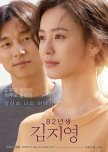
Esta resenha pode conter spoilers
Book vs. Film
As the saying goes: the book was better. Not to say the movie is bad, quite the contrary, I did enjoy it, but it didn't introduce Jiyoung's story as well to me as the book did.The book is divided into sections, showing Jiyoung's life as she grows up, her childhood, her teen years, her adult life in college than working and finally her marriage as we see her mental health deteriorate due to the years of misogyny she - and every woman living in korea - suffered.
The movie on the other hand, spends most of it's time on married Jiyoung and her life as a housewife and mother, showing a handful of scenes of her life growing up, which to me took away the build up the book did so well and excluded really relevant and important scenes from her early years which showed not only her but her family dynamic as well, instead what they did was include scenes that TELL the audience "this is why Jiyoung is unwell", which didn't work for me.
I can't help but feel like that happened because they casted big names to play Jiyoung and her husband, so they didn't want to spend most of the movie on other actors that would play young Jiyoung and when her husband wasn't present in her life which would be most of the story, and the reason why I get that feeling is because they introduced scenes from the husband's point of view that don't exist in the book, and these scenes don't need to exist because the topics discussed in them - sexual assault and sexual harassment in the work place - are present in Jiyoung's life, we see them through her as she directly suffers from them, so they're more impactful.
The only thing these scenes added to the narrative was to show the difficulties women face in korean society and to show Jiyoung's mental health issues from the perspective of the husband, but both of them are already done well in the book without taking away her point of view, or they were done in a way that complimented her story in a better way, so to me it really felt like "oh we have to give Gong Yoo more scenes, it's Gong Yoo!".
As for the endings: I do prefer the open ending of the book, a sort of Twilight Zone ending, with no hope to it, because we end up with the feeling that this isn't a situation that can be resolved, because misogyny will always be present, hurting women everywhere little by little, taking away from our soul, or even that this situation is exclusive to Jiyoung, she is just one of many women who broke under our patriarchal society. So while the hopeful/happy ending of the film was a nice watch, it wasn't as impactful to me.
So basically if I hadn't read the book before watching the movie I would've enjoyed much more, because it is a good movie that showcases well the misogyny korean women face on a daily basis, while also, just like the book, remaining true to the experiences women everywhere face. BUT....... the book was better ;)
Esta resenha foi útil para você?
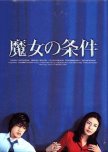
Esta resenha pode conter spoilers
Adult woman takes advantage of a teen boy and causes chaos in his life
I'm almost speechless with how evil this was.The FL, the villain of the show, who somehow is portrayed as a sympathetic person, self righteous in her belief that she's fighting for true love, when in fact she's just another disgusting weirdo grooming a teenager for her own pleasure, emotionally taking advantage of him in every corner, to the point she genuinely puts him in a situation where he has to choose between her or his suicidal mom. And don't forget, this woman is only in this depressive state partly because of the FL, because she tried everything, including calling the police, but that predator wouldn't leave her son alone, who wouldn't be emotionally done with this situation? (I'm saying partly, because her emotional state is also caused by an obsessive violent man who ruins her career just so that she doesn't have any other option but to be with him).
So this isn't just a story of an adult starting a relationship with a teenager, this is a story of an adult completely messing with that teenager's life, messing with his education, messing with the relationship with his mother, putting him in situations where he is psychically and emotionally hurt, by his peers and other adults, as well as placing responsibilities on him that a 17 year old should not have (I'm taking about the pregnancy and the fact that he took a minimum wage job to take care of her and the child, and then later on ended up in a situation where he was bound to her vegetative body).
All with a smile on her face, and a "I'm right, you're wrong" attitude. What an insufferable, immature, psychotic, completely delusional woman, and what a ridiculous drama for trying to paint her as a woman fighting for the freedom to love, and this relationship as a forbidden love that succeeded against all odds. This was some bullshit!
Esta resenha foi útil para você?

#NotMyDragRaceTH
It was not the return I hoped for Thailand, I think beyond the very clear issues with the low budget production, the season suffered from what I believe was an attempt of following the Drag Race formula, instead of allowing it to be its own unique thing, because it's been a while, but I do remember seasons 1 and 2 feeling different from the main franchise, which is what attracted the fans in the first place. But after watching Global All Stars, it seems to me that the people behind Drag Race don't have much respect for cultural diversity, and would rather uplift westernized ideas of art, beauty and comedy.Removing Art Arya from the presenter and lead judge position was mistake n. 1, her and Pangina had an amazing chemistry that worked perfectly for the show, and scheduling season 3 of DRTH to come out right after season 3 of DRPH was mistake n. 2. Right now Philippines is the best version of Drag Race out there, even better than the original American franchise, any other season that comes out after PH will look bad in comparison.
But I'm glad Thai queens get to have this amazing opportunity, and regardless of the quality of this season I do hope we get a season 4, and that Drag Race continues to expend itself outside of European countries. Recently it was announced that a South African franchise is in the works, which I'm so excited for, and I think a Drag Race Japan next would be perfect, considering there's a momentum for marriage equality in the country.
Esta resenha foi útil para você?
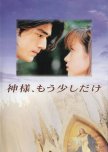
Esta resenha pode conter spoilers
Absolutely loved the FL, loved the person she grew to become, loved how her relationship with her parents developed, and loved the actress, she led the narrative brilliantly, but there's two key issues:1. The age gaps, both with the characters and the actors: Fukada Kyoko was 16 years old when she filmed this drama, and that's very important because the FL, who is also 16 years old, has multiple sexual relationships with adult men, which means the teen actress was put in situations where she had to kiss these men and film intimate scenes.
And within the narrative, the age gap between the characters was also never a problem, at no point the men are questioned or criticized for having sex with a minor, quite the opposite, even the man who pays for teen prostitutes and who gave the FL HIV is eventually portrayed as a good guy at heart.
This is probably a matter of time period, this is a 90s drama after all and it seems like people just didn't care about protecting kids back in the day, not like we're perfect now, but I genuinely think a drama like this would get a lot of backlash today. Regardless, I think it's important to note this aspect of the cast/story and how problematic it is, just because a story is old doesn't mean we have to shut down conversations about what's appropriate and what isn't.
2. The ending: If the goal was to kill the FL, there were so many ways to do it well, and show how horrific AIDS was prior to all the medication we currently have, that allows people living with HIV to have full, happy and healthy lives, the English series It's A Sin is a perfect example of a well-done HIV/AIDS storyline. Instead, I think the goal of the writers was to shock the audience, and that made the ending be very rushed, very random and very poor, so I wasn't sad for the FL and her loved ones, I was just dumfounded.
Esta resenha foi útil para você?

I appreciate how the film didn't include a romantic storyline, because that's the one thing about the drama I was never a big fan of, but if you have to choose between the drama and the film, I definitely think the drama is the better option. It flashes out Aya's life more properly, her goals, friendships and family, while the film, because of its short runtime, focus more on the progression of her illness, ignoring her life prior to the diagnosis.
Esta resenha foi útil para você?
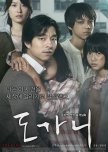
An exhausting and infuriating film
To be quite fair, I skipped so many parts of this movie, because it was just so unbearable to watch, that I'm not sure I can say if it was good or not, all I can say is that I feel.... unsure and angry and sad and disappointed in humanity.It was a very well-made movie with fantastic acting from the entire cast, especially the children, and I'm happy it created so much anger that it led to change in legislations in South Korea regarding the sexual abuse of children and people with disabilities, but I don't think it needed to put the child actors in a position where they had to film such graphic scenes.
I think the graphic nature completely destroys any rewatch value of the movie, and I'm questioning the need to risk potentially traumatizing these children. There has to be better ways to explore sexual assault in movies, especially of minors, in a way that does not put the actors at any risk.
I hope they had psychological support during the filming process, because no art is worth hurting a child.
Esta resenha foi útil para você?

























